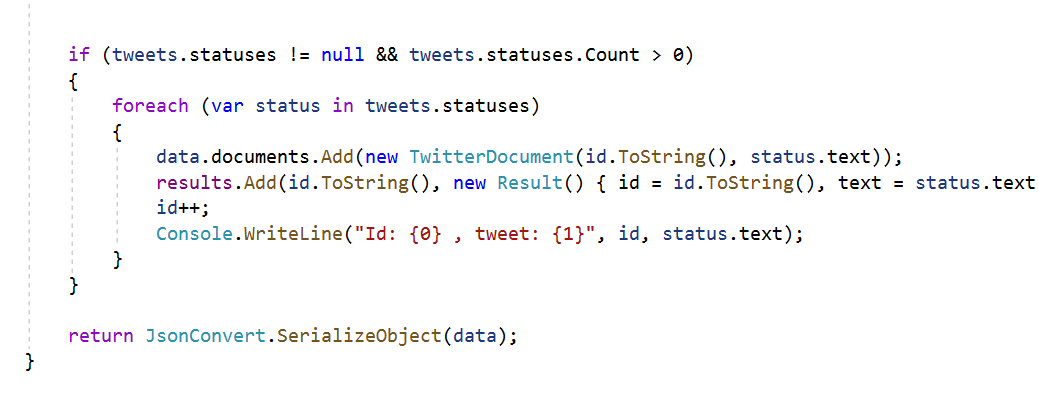Embarking on a journey through the intricacies of C# logical operators unveils a realm where programmers wield the power of conditional logic with finesse and precision. In this comprehensive guide, we delve deep into the fundamental principles of logical operators, unraveling their functionalities and showcasing their potential in constructing complex conditions. Join us as we pave the path to elevate your mastery of C# if statements to new heights.
Understanding Logical Operators: Foundations of Complex Conditions
Logical operators serve as the cornerstone of crafting intricate conditional statements in C#. By comprehending their functionalities and nuances, programmers unlock the ability to weave together multiple Boolean expressions into cohesive decision points. Below, we delve into the fundamental aspects of logical operators, elucidating their roles in constructing complex conditions:
The Logical AND Operator (&&): Demanding Convergence:
- The logical AND operator, denoted by &&, necessitates that both the left and right expressions evaluate to true for the overall condition to be true;
- Ideal for scenarios where multiple criteria must be fulfilled simultaneously to trigger a specific action;
- Example: Verifying if both the temperature and pressure are within acceptable ranges before initiating a process
The Logical OR Operator (||): Embracing Diversity:
- Signified by ||, the logical OR operator returns true if either the left or right expression, or both, are true;
- Provides flexibility by allowing execution when at least one condition is met, catering to scenarios with diverse possibilities;
- Example: Determining eligibility for a discount based on either age or membership status.
The Logical NOT Operator (!): Illuminating Negation:
- The logical NOT operator, represented by !, inverses the truth value of the expression it precedes;
- Valuable for verifying the absence of a particular condition or negating a Boolean expression;
- Example: Alerting users if a resource is unavailable by checking if the resource status is not “available”.
Mastering these logical operators lays the groundwork for constructing intricate if statements that accurately reflect the complexities of real-world scenarios. With a firm grasp of their functionalities, programmers gain the agility to navigate through multifaceted decision-making processes with clarity and precision.
C# Conditions and If Statements
These foundational constructs empower developers to steer the course of execution based on precise criteria, unlocking a realm of possibilities within their code. Join us as we embark on a journey to unravel the essentials of conditions and if statements in C#, offering valuable insights into their usage and best practices.
Conditions and if statements form the backbone of conditional logic in C#, providing developers with the means to direct program flow based on specific conditions. From simple boolean expressions to complex decision trees, these constructs imbue code with intelligence and adaptability, allowing it to respond dynamically to changing circumstances.
Understanding Conditions
Conditions in C# are expressions that evaluate to either true or false. They are used to make decisions within a program based on the state of certain variables or the outcome of comparisons. Common types of conditions include comparisons (e.g., equality, inequality, greater than, less than) and logical operations (e.g., AND, OR, NOT).
Example:
csharp
int x = 10; int y = 5; bool condition = (x > y); // Condition evaluates to trueIf Statements
If statements are control flow structures that execute a block of code if a specified condition evaluates to true. They provide the foundation for implementing decision-making logic in C# programs. If statements can be standalone or combined with else if and else blocks to handle multiple conditions.
Syntax
csharp
if (condition) { // Code block to execute if condition is true }
Example:
csharp
int temperature = 25; if (temperature > 30) { Console.WriteLine("It's hot outside!"); }Else If and Else Statements:
In addition to the basic if statement, C# supports the else if and else clauses to handle alternative conditions. Else if statements allow for the evaluation of additional conditions when the initial if condition is false, while the else statement provides a fallback option when none of the preceding conditions are met.
Syntax:
csharp
if (condition1) { // Code block to execute if condition1 is true } else if (condition2) { // Code block to execute if condition2 is true } else { // Code block to execute if neither condition1 nor condition2 is true }
Example:
csharp
int score = 75; if (score >= 90) { Console.WriteLine("Excellent!"); } else if (score >= 70) { Console.WriteLine("Good job!"); } else { Console.WriteLine("You can do better!"); }Nested If Statements:
Nested if statements are if statements that are nested within another if statement. They allow for the implementation of complex decision-making logic by evaluating multiple conditions in a hierarchical manner.
Example:
csharp
int x = 10; int y = 5; if (x > 0) { if (y > 0) { Console.WriteLine("Both x and y are positive."); } else { Console.WriteLine("x is positive, but y is not."); } }Conditions and if statements are indispensable tools in the C# programmer’s arsenal, empowering them to create dynamic and responsive applications. By mastering the syntax and usage of these constructs, developers can efficiently implement decision-making logic and control the flow of their programs with precision and clarity.
c# – If statements and && or
In the realm of C# programming, if statements stand as the gatekeepers of decision-making within our code, while logical operators such as && and || serve as the secret keys to unlock intricate pathways of conditional logic. Let’s embark on a journey to unravel the mysteries of combining if statements with these powerful operators, illuminating the way to more dynamic and efficient code.
If statements in C# provide the fundamental mechanism for executing code based on specific conditions. However, their capabilities expand exponentially when combined with logical operators, enabling programmers to orchestrate complex decision-making processes with elegance and precision.
- The && Operator: Enhancing Conditions with Conjunction. The && operator, also known as the logical AND operator, acts as a gatekeeper, allowing code execution only when all conditions it connects evaluate to true. This powerful tool enables programmers to create conditions where multiple criteria must be met simultaneously for code to execute, resulting in more refined and targeted decision points;
- The || Operator: Embracing Disjunction for Flexibility. On the other hand, the || operator, or the logical OR operator, offers a different perspective, providing flexibility in decision-making by allowing code execution if any of the connected conditions evaluate to true. This versatility is invaluable in scenarios where multiple paths may lead to the same outcome or when a single condition may trigger different responses;
- Mastering the Art of Combination. By judiciously combining if statements with && and || operators, programmers unlock a realm of possibilities, from intricate business logic to streamlined error handling. Whether navigating complex business rules or optimizing code performance, mastering the art of combination empowers developers to wield conditional logic with unparalleled efficiency and clarity.
If statements and logical operators form the cornerstone of conditional logic, offering a wealth of tools for crafting robust and efficient code. By harnessing the power of && and || operators in conjunction with if statements, developers unlock new dimensions of flexibility, precision, and elegance in their code. Armed with this knowledge, programmers stand ready to tackle the challenges of real-world programming scenarios with confidence and ingenuity, navigating the intricacies of conditional logic with finesse and grace.
Different Ways to Write Conditional Statements in C#
Conditional statements are essential constructs in C# programming, allowing developers to control the flow of their code based on specific conditions. In C#, there are multiple ways to write conditional statements, each with its own syntax and use cases. This guide explores the various methods of writing conditional statements in C#, providing insights into their differences and best practices.
1. If Statement:
The if statement is the most basic form of conditional statement in C#. It evaluates a condition and executes a block of code if the condition is true.
Syntax:
csharp
if (condition) { // Code to execute if condition is true }
Example:
csharp
int x = 10; if (x > 5) { Console.WriteLine("x is greater than 5"); }2. If-Else Statement
The if-else statement extends the functionality of the if statement by providing an alternative block of code to execute if the condition is false.
Syntax:
csharp
if (condition) { // Code to execute if condition is true } else { // Code to execute if condition is false }
Example:
csharp
Copy code
int x = 3; if (x % 2 == 0) { Console.WriteLine("x is even"); } else { Console.WriteLine("x is odd"); }3. If-Else If-Else Statement:
The if-else if-else statement allows for evaluating multiple conditions sequentially. It provides flexibility for handling multiple scenarios.
Syntax:
csharp
if (condition1) { // Code to execute if condition1 is true } else if (condition2) { // Code to execute if condition2 is true } else { // Code to execute if no conditions are true }
Example:
csharp
int score = 85; if (score >= 90) { Console.WriteLine("Excellent"); } else if (score >= 80) { Console.WriteLine("Good"); } else { Console.WriteLine("Needs improvement"); }4. Switch Statement
The switch statement provides a structured way to handle multiple cases based on the value of an expression. It is particularly useful when there are many possible conditions to evaluate.
Syntax:
csharp
switch (expression) { case value1: // Code to execute if expression equals value1 break; case value2: // Code to execute if expression equals value2 break; default: // Code to execute if no case labels match break; }
Example:
csharp
int dayOfWeek = 3; switch (dayOfWeek) { case 1: Console.WriteLine("Monday"); break; case 2: Console.WriteLine("Tuesday"); break; // More cases... default: Console.WriteLine("Invalid day"); break; }5. Conditional Operator (Ternary Operator)
The conditional operator (?:) provides a compact way to write simple conditional expressions. It returns one of two values depending on the result of a Boolean expression.
Syntax:
csharp
condition ? value1 : value2
Example:
csharp
int x = 10; string result = (x > 5) ? "x is greater than 5" : "x is not greater than 5"; Console.WriteLine(result);Developers wield a mighty arsenal of tools for crafting conditional statements, each endowed with its own unique strengths and applications. By delving into the syntax and intricacies of these diverse methods, programmers ascend to the rank of code artisans, empowered to select the optimal approach for steering the course of their code with precision and finesse.
C# и .NET
In the realm of modern software development, the partnership between C# and .NET stands as a cornerstone of innovation and efficiency. Together, they provide developers with a robust framework and a powerful programming language, enabling the creation of diverse and sophisticated applications. Let’s explore the symbiotic relationship between C# and .NET, uncovering the synergies that drive their success and the myriad possibilities they unlock for developers worldwide.
- The Power of C#. C# is a versatile and expressive programming language renowned for its simplicity, elegance, and flexibility. With its rich set of features, including modern language constructs, strong typing, and seamless integration with the .NET ecosystem, C# empowers developers to build scalable, performant, and maintainable software solutions across a wide range of domains;
- The Versatility of .NET. NET is a comprehensive, cross-platform framework that provides developers with a unified platform for building applications for web, desktop, mobile, cloud, and IoT environments. With its extensive class libraries, runtime environment, and development tools, .NET offers unparalleled versatility, enabling developers to leverage their existing skills and resources to create innovative and scalable solutions;
- The Symbiosis of C# and .NET. The synergy between C# and .NET is a testament to their complementary nature. C# serves as the language of choice for developing applications on the .NET platform, offering developers a powerful and expressive syntax for expressing their ideas and solving complex problems. Meanwhile, .NET provides the runtime environment, libraries, and tools necessary to execute and deploy C# code across a variety of platforms and devices, ensuring optimal performance, security, and scalability;
- Unleashing the Potential. Together, C# and .NET unlock a world of possibilities for developers, enabling them to tackle diverse challenges and bring their ideas to life with confidence and efficiency. Whether building enterprise-grade web applications, high-performance desktop software, or cutting-edge mobile experiences, the combination of C# and .NET empowers developers to push the boundaries of innovation and deliver value to users worldwide.
As developers harness the power of these technologies to build the next generation of software solutions, the possibilities are endless. With C# as their language of choice and .NET as their platform of choice, developers stand poised to shape the future of technology and transform the way we live, work, and interact in the digital age.
Tips for Mastery: Enhancing Readability and Efficiency
Elevate your proficiency in crafting and interpreting complex if statements with these expert tips, designed to streamline your coding process and enhance code clarity:
Evaluate Boolean Expressions in Shorthand:
- Simplify code by omitting explicit true/false comparisons;
- Instead of using == true or == false, directly use the Boolean expression;
- Example:
- Explicit form: if (dbConnected == true);
- Shorthand: if (dbConnected)
Parentheses with Complex Conditions:
- Enhance readability and prevent common mistakes by using parentheses to clarify and control the order of operations;
- Group expressions logically to ensure proper evaluation of conditions;
- Example:
- Unclear Expression: if (rpm >= avgRPM * 0.50 && rpm <= avgRPM * 1.50 && rpm != 0)
- Clearer Expression with Parentheses: if ((rpm >= avgRPM * 0.50) && (rpm <= avgRPM * 1.50) && (rpm != 0))
Incorporating these savvy strategies into your coding repertoire not only turbocharges your code’s efficiency but also bestows upon it the cloak of readability and maintainability, a boon for both you and your fellow code wranglers.
Armed with a deep dive into the enigmatic realm of logical operators and their mystical powers in crafting the arcane if statements, you emerge as the master of the code cosmos, ready to navigate the cosmic dance of conditional logic with the swagger of a digital sorcerer. Let each if statement be a shimmering beacon of your coding prowess, guiding your digital voyages through the nebulous mists of possibility with a deft hand and unwavering clarity.
Conclusion
As we conclude our exploration of logical operators in C#, we emerge with a deeper understanding of their pivotal role in crafting conditional statements. Armed with this knowledge, programmers are empowered to tackle real-world programming challenges with confidence and efficiency. The ability to weave together multiple Boolean expressions into cohesive decision points unlocks new possibilities for building sophisticated applications. Let us embrace the artistry of conditional logic and continue our coding journey with creativity, innovation, and boundless potential. Happy coding!





































Add comment